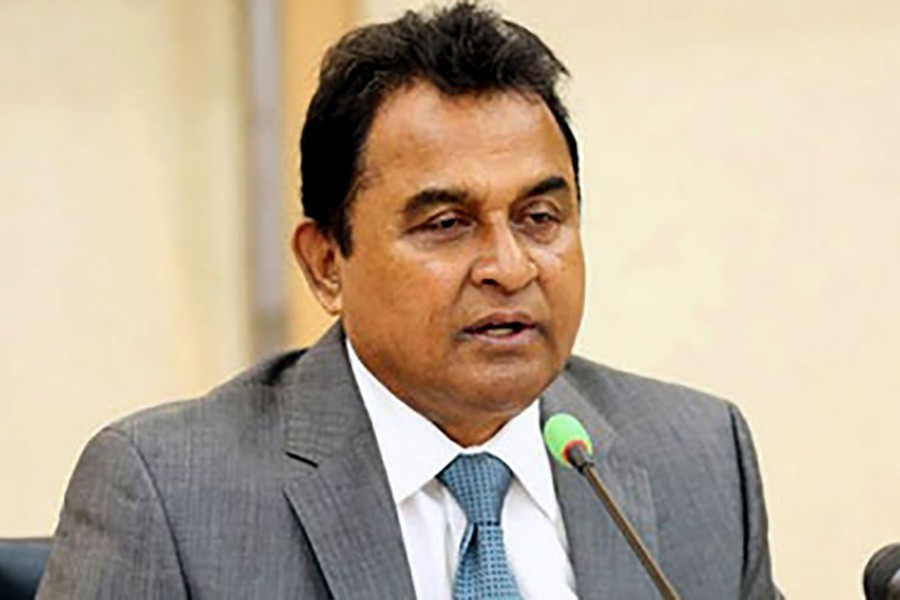Finance Minister A H M Mustafa Kamal Wednesday admitted seeking loans from the International Monetary Fund (IMF), although last week he denied any intention to take loans immediately.
"If I expose my need, the lender will impose higher cost and conditions," the minister said, adding he had to deny the need for any loan last week for strategic reasons.
The minister's reply came when he was asked if the country's economic condition deteriorated within a week, forcing the government to change its stance.
He was briefing newsmen after a virtual meeting of the Cabinet Committee on Government Purchase.
This week various media outlets reported that the Ministry of Finance sent a letter to the IMF on Sunday, seeking loans to the tune of US$4.5 billion.
Replying to a query, Mr Kamal said: "We need to manage situations by showing less eagerness, and in this way we gain."
"This is a bargaining point. Through such bargains we lower terms and references for loans."
The minister stated that Bangladesh does not print dollar, but obtains through remittance inflow - sent by Bangladeshi manpower working abroad - and from businesses people.
"The situation has not deteriorated until now… we will be able to provide loans to others."
He noted that the letter to the IMF did not mention how much money the country needed.
"We will first see what conditions they want to impose. If they impose fewer conditions and charge lower interest rate, we may consider borrowing."
On a question about international media's terming the loan-seekers' as bankrupt, the minister replied: "It's a lie."
"If it is true, why are the IMF and the World Bank providing loans to those countries? Are they throwing money out? That can't happen."
Mr Kamal opined that the lenders are after Bangladesh to provide loans. "Bangladesh is a good marketplace for them. They have full confidence on us, because repaying loans is very easy for us."
On dollar price, he noted that some people are deliberately out to make the dollar price volatile in the name of import. "We have asked our machinery to control them strictly."
"Dollar price will depend on demand and supply. If the demand is high and the supply is low, its price will go up."
He hoped that remittance inflow would go up significantly, as an increased number of local workers went abroad this year.
Regarding the IMF's condition to lift the cap on loan and deposit interest rates, he mentioned that Bangladesh's economy was in a "good" position due to it.
"Had the 6.0 per cent and 9.0 per cent interest rates not been effective, the rate would have reached at 20-22 per cent, and during the Covid period no business entities could have survived."
Besides, unemployment would have created and all economic indicators could have stood at negative territory.
"It (imposing the cap) was our good decision. I again say the banking sector has come to a stable position due to the 6.0 per cent and 9.0 per cent interest rates," he added.
The finance minister claimed that the state-owned banks are no more seeking refinancing.
"We have already stopped it. Besides, the private sector banks have reached at green from red," he added.


